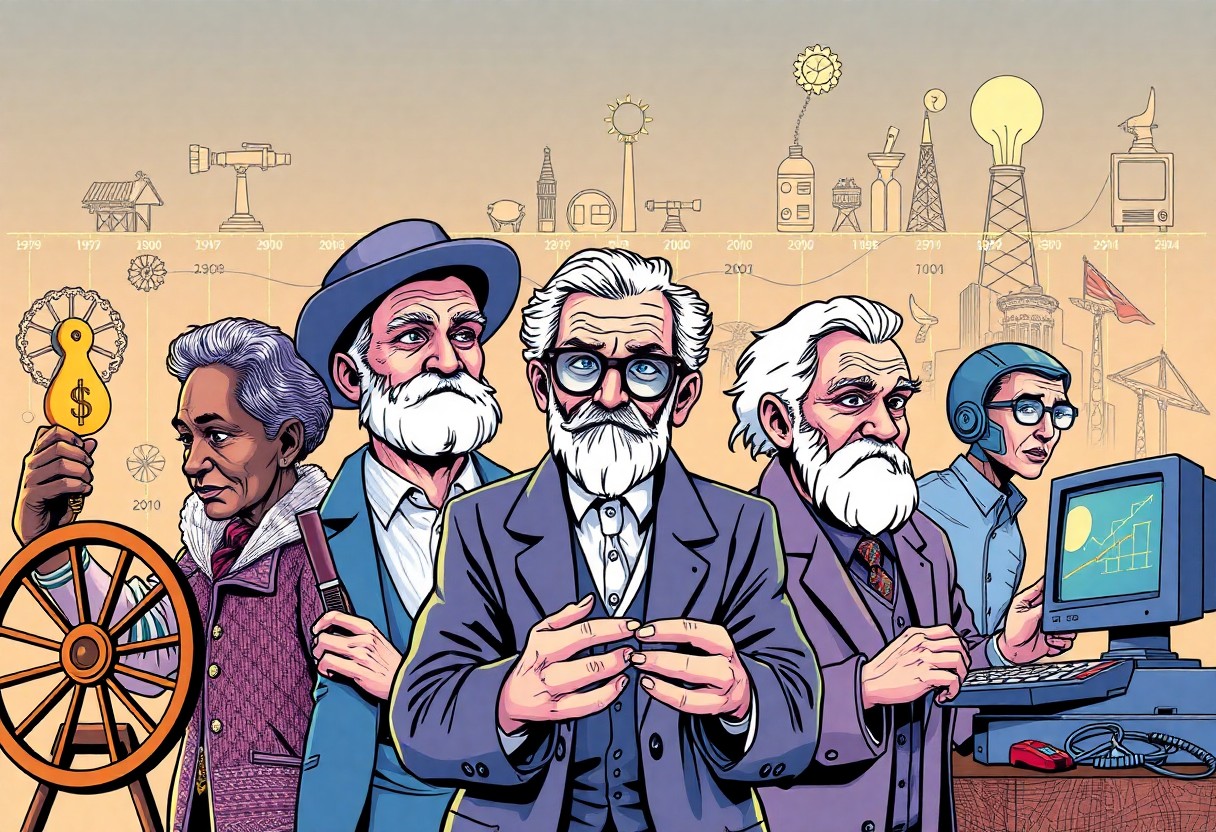Search

Most people do not recognize the profound impact that inventions have had on shaping your daily life and society at large. Throughout history, great ideas have emerged from the mind of brilliant inventors, challenging the status quo and propelling humanity forward. These innovations have transformed the way you live, communicate, and conduct business, often leading to societal shifts that set the course for future generations.
Understanding the science of invention requires you to look at the core principles that drive innovation. At the heart of every invention lies a problem that needs solving. Inventors observe challenges in various fields—whether it be transportation, health, or communication—and use analytical thinking to create solutions. By studying these breakthroughs, you can appreciate how they addressed societal needs or improved the quality of life in ways you may take for granted today.
One primary aspect of invention is the iterative process. You might view this as a cycle of prototyping, testing, and refining ideas until they produce effective results. Take the invention of the wheel, for example. It wasn’t a one-time event but rather an evolution of thought that contributed to advancements in transportation, agriculture, and trade. As you explore this evolution, you can see how such innovations spawn even greater ideas, leading to the construction of roads and railways that further connected societies.
The transformative nature of inventions often coincides with periods of intense social change. The Industrial Revolution in the 18th and 19th centuries is a perfect illustration of how technological advancements coincide with societal transformation. The introduction of the steam engine drastically changed the landscape of labor, prompting a shift from agrarian lifestyles to urban living. This transition not only revolutionized production but also created new societal structures, leading to improved living standards and economic growth. You benefit from these historical shifts, perhaps without realizing how deeply they are woven into the fabric of your everyday existence.
Communication methods have also evolved dramatically, redefined by great inventions. The printing press, developed by Johannes Gutenberg, revolutionized the dissemination of information, allowing ideas to circulate widely and sparking social movements that reshaped governments and cultures. Fast-forward to the invention of the internet, and you can see a clear progression toward global connectivity. It empowers you by providing knowledge at your fingertips, enabling social interaction and collaboration that was once inconceivable.
Inventions do not only trigger economic and social changes; they also evoke ethical considerations. Consider how the creation of technologies like artificial intelligence invites debates on autonomy, privacy, and morality. By engaging in these discussions, you become part of the ongoing narrative about how inventions can shape a sustainable and equitable future.
In short, the science of invention is a journey that has continuously reshaped your world through innovative ideas and technologies. Understanding how these inventions arise from observation and iteration can inspire your creativity and problem-solving skills. By valuing both past and present innovations, you can appreciate the impact they have on society and cultivate your contribution to future advancements.
Leave a comment